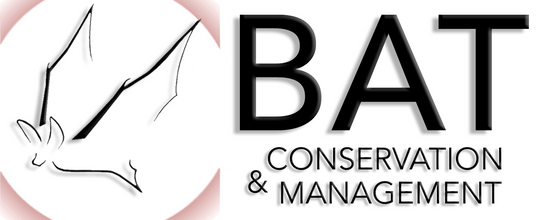Bat Management Workshop
Bats have long been associated with cave habitats, but throughout history this association has not always benefitted these cryptic mammals. In fact, our cave-dwelling bat species have suffered some of the most catastrophic population declines. Fortunately, we now have a far better understanding of the complexities in underground environments and their importance to bats. This special topic training includes 5 days and 4 nights of lecture, demonstration, and field trips, highlighting the essentials of cave environments. Students will receive unparalleled, guided access to real cave habitats where they can learn first-hand the techniques, tools, and survey methods for assessing underground habitats and other important resources.

Program Details
Legendary bat biologist Merlin D. Tuttle, joins us for this one-of-a-kind training to share his impressive body of work to study, understand, and conserve cave-dwelling bats throughout the world. Merlin’s ground-breaking work with the gray myotis in the southeastern United States during the 1960s and 70s illustrated for the first time just how dependent bats are on specific caves for both maternity and hibernation success. His work was instrumental in getting the gray myotis listed as Federally Endangered and has directly led to its current impressive recovery. Important discoveries from his original research have been extrapolated and applied to other cave-dwelling bat species and populations across time and distance with similar conservation results. Jim "Crash" Kennedy and John D. Chenger, two highly experienced cavers with impressive bat conservation resumes of their own, will assist Merlin to present this training.
Class begins with a detailed glimpse of the variety of underground environments and how to determine their suitability to different bat species at all stages of their life-cycles. Bat natural history and the history of cave exploration and human use is combined to highlight the important biological implications of cave study and protection. Case studies of cave conservation are presented and field trips to nearby caves will illustrate many of the successful efforts to balance human and bat needs on the landscape. We will also briefly touch upon focus on other cave resources, such as cave invertebrates, groundwater, and archeological and paleontological resources that will benefit from good cave management.
Note: This training is ideal for federal and state agency biologists tasked with managing cave bats or consultants, students, and citizen scientists who seek training in assessing underground habitats for bats. Students will not be capturing or handling bats during this course, but they will be entering the underground environment and must be comfortable traveling thru dark, sometimes claustrophobic places. No technical rope or climbing experience is required. Students must bring approved caving gear including: helmets, two light sources, gloves, closed-toe shoes, and clothing with long-sleeves and long-pants. Coveralls and kneepads are strongly recommended. Additional pre-course materials and information about how to prepare will be provided upon registration.
Field Survey Curriculum and In-field Highlights
- Introduction to Cave Management Legislation and Federal Protection
- The Importance of bats and their Economic and Ecological Importance
- Introduction to Cave Survey Protocols and Prioritization
- Survey Methods for Assessing Cave Bats
- Natural History of Cave-dwelling Bat Species
- Identifying Bat Use by Examining Roost Stains and Guano Piles
- Variation in the Cave Environment and its Biological Implications
- Case Studies of Cave Protection Efforts
- Case Studies of Successful Cave Restoration Projects
- Working with the Public, Commercial Caves, and Land Managers
- On-going Cave Management Responsibilities
- Assessing Caves for Bats, Practicing Underground Safety and Using Bat Survey Gear
- Field Trips to Visit Historic, Current, and Protected Bat Roosts
In-field Demonstrations and Practicums may vary according to group interests and/or local conditions during the training. Please contact us any time if you have specific training goals you would like the instructors to address.
